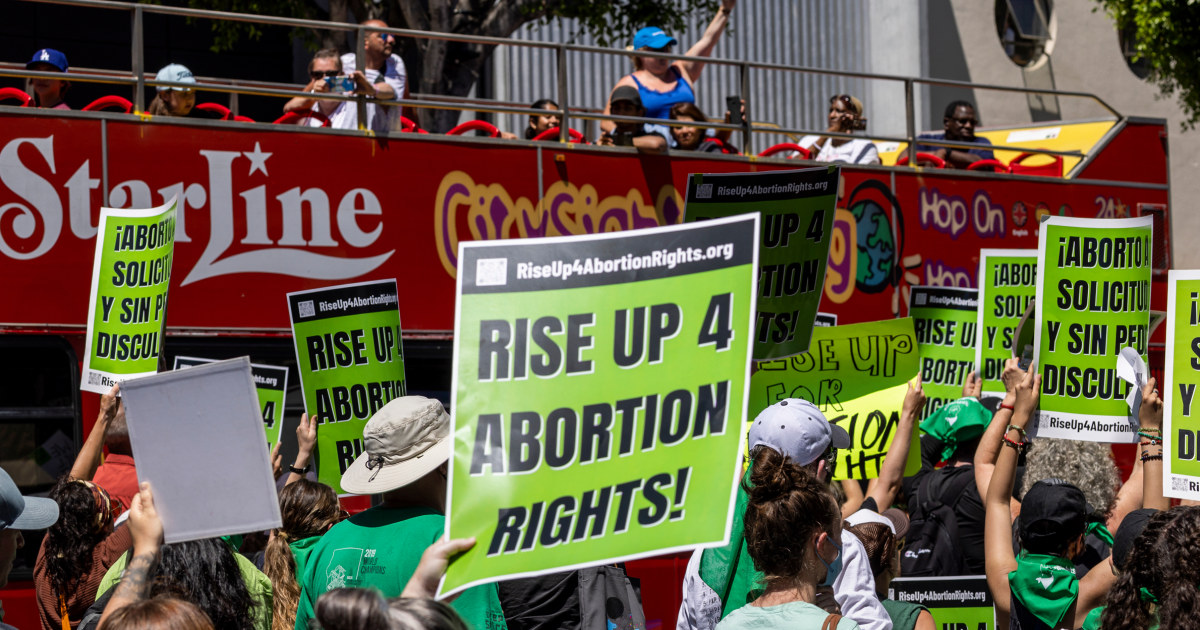Millions of voters will soon determine the fate of abortion access in a handful of states, including Michigan, which could become the first to make an abortion ban permanently unenforceable since the fall of Roe v. Wade.
At the polls Tuesday, voters in California, Michigan and Vermont will decide whether to enshrine reproductive freedom rights in their state constitutions, while voters in Kentucky could do the opposite and explicitly conclude there should be no such protections.
In Montana, if a ballot initiative passes, health care providers in the state could face criminal charges if they do not take “reasonable actions” to save an infant who is born alive, including after an attempted abortion.
The measure and its proposed punishments, including up to 20 years behind bars and a maximum $50,000 fine, have been met with fierce opposition from medical providers.
The American College of Obstetricians and Gynecologists said such a “cruel” law would mandate aggressive treatments in extremely complex situations, which could “prolong suffering and deny families the choice to offer comfort or spiritual care.”
The referendums come more than four months after the Supreme Court overturned Roe v. Wade, the landmark ruling that had guaranteed a constitutional right to abortion.
In reversing the half-century precedent, the court left the power to limit or grant abortion rights to the states. That triggered one ballot measure on abortion in Kansas in the summer, and five more this fall. That is the highest number of abortion-related ballot propositions in a single year, according to the bipartisan National Conference of State Legislatures.
It has left the stakes exceptionally high in Michigan, a key battleground this year. If Proposal 3 — a ballot measure to create a state constitutional right to reproductive freedom — passes, it would invalidate a 1931 state law that bans abortion without exception for rape or incest.
Citizens to Support Michigan Women and Children, a leading opponent of the proposition, criticized it as “confusing and extreme.” Christen Pollo, a spokeswoman for the group, said it would have “dangerous consequences for women and children in our state.”
In August, a judge temporarily blocked enforcement of the anti-abortion law, which had been inactive in the decades that Roe v. Wade stood. And a state court declared the law unconstitutional a month later. But supporters of the ballot initiative said there is a chance the decision could be appealed.
Codifying abortion rights in the state constitution would prevent the decision from being overturned, said Nicole Wells Stallworth, executive director of Planned Parenthood Advocates of Michigan. It would also stop future administrations from being able to implement harsh restrictions, she added.
Michigan Gov. Gretchen Whitmer, the Democratic incumbent, has been a champion for abortion rights, but she is fending off a challenge from Republican candidate Tudor Dixon, who called the abortion ballot proposition “radical” in a debate with her.
“The tables turn every cycle,” Wells Stallworth said. “Regardless of who’s in office, who is serving on the judicial bench, who the state attorney general is, Michigan residents have the right, embedded into the Michigan constitution, to reproductive freedom.”
In Kentucky, where a ballot proposition could strengthen restrictions, the opposite could happen.
Voters will determine whether to alter the state constitution to explicitly say it does not protect a right to abortion or abortion funding.
Abortion was effectively outlawed in Kentucky over the summer after an appeals court allowed the state’s “trigger laws” to go into effect after the Roe v. Wade ruling. Abortion rights advocates are challenging those laws.
If the amendment passes, it would make it a lot harder for abortion rights advocates to continue those challenges, said Stephen Voss, a political science professor at the University of Kentucky, who specializes in elections and voting.
Rachel Sweet, a campaign manager for Protect Kentucky Access, which opposes the referendum, said it would be nearly impossible to restore abortion access in Kentucky through legal pathways.
“Right now, there’s ongoing litigation over existing state laws that have banned abortion in nearly all cases,” she said. “If the amendment passes, the lawsuits over those cases basically stop.”
If the amendment fails, it leaves open the possibility that pro-abortion litigation could prevail in courts. More significantly, the Kentucky Supreme Court could also take its cue from voters when it hears oral arguments on the matter scheduled a week after the election, Voss said.
Sweet is hopeful after successfully leading a similar ballot campaign in conservative Kansas in August.
In the first electoral test of the issue since Roe v. Wade was overturned, Kansas voters overwhelmingly rejected a proposed constitutional amendment that would have stripped out protections for abortion rights.
Fifty-nine percent of voters rejected the measure amid turnout that the secretary of state said was “incredibly high.”
“What Kansas showed us, and what I hope we can prove in Kentucky, is that this issue is actually very unifying,” Sweet said.
Support for abortion rights has reached a record high, and nearly two-thirds of Americans oppose the Supreme Court overturning Roe v. Wade, a national NBC News poll found in May.
“Abortion impacts way more people than we think it does,” Sweet said.
Share your story or advertise with us: Whatsapp: +2347068606071 Email: info@newspotng.com












